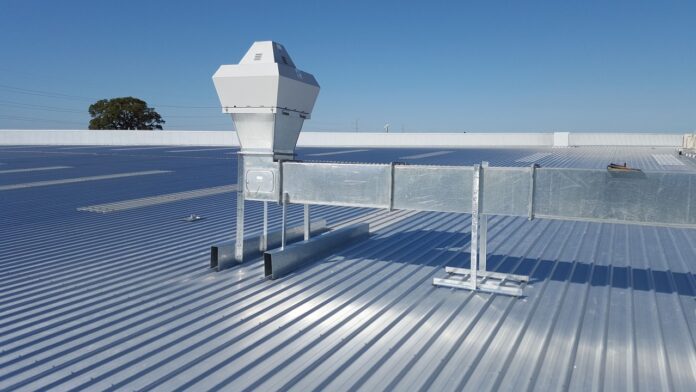Introduction
Heating, Ventilation, and Air Conditioning (HVAC) systems are essential for maintaining comfortable indoor environments in homes, offices, and industrial settings. Regular maintenance of these systems is crucial to ensure optimal performance, energy efficiency, and longevity. Neglecting HVAC maintenance can lead to higher energy costs, frequent breakdowns, and poor indoor air quality. This article explores the importance of regular HVAC system maintenance and offers practical tips to keep your system running smoothly.
1. Enhances Energy Efficiency
One of the primary benefits of regular HVAC maintenance is improved energy efficiency. A well-maintained system operates more efficiently, reducing energy consumption and lowering utility bills.
Cleaning and Replacing Air Filters: Dirty or clogged air filters restrict airflow, making the system work harder. Regularly cleaning or replacing filters ensures proper airflow and efficiency.
Inspecting and Cleaning Ducts: Clean ducts allow for efficient airflow and reduce the workload on the system. Professionals can inspect and clean ducts to remove dust and debris.
2. Extends System Lifespan
Routine maintenance helps extend the lifespan of your HVAC system by addressing minor issues before they become major problems.
Checking and Lubricating Components: Regular maintenance includes checking and lubricating moving parts, which reduces wear and tear and prolongs the system’s life.
Tightening Electrical Connections: Loose electrical connections can cause components to fail. Ensuring that all connections are tight helps prevent system failures.
3. Improves Indoor Air Quality
HVAC systems play a significant role in maintaining indoor air quality. Regular maintenance ensures that the system effectively filters and circulates air, reducing the presence of pollutants.
Cleaning Coils and Drains: Dirty coils and blocked drains can lead to mold growth and poor air quality. Regular cleaning helps prevent these issues.
Inspecting for Leaks: Leaks in the system can introduce contaminants. Regular inspections help identify and fix leaks, maintaining air quality.
4. Reduces Repair Costs
Preventative maintenance helps identify and address potential problems early, reducing the need for costly repairs.
Identifying Worn Parts: Technicians can identify worn or damaged parts during maintenance checks and replace them before they cause system failures.
Preventing Breakdowns: Regular maintenance reduces the likelihood of unexpected breakdowns, which can be expensive to fix.
5. Ensures Optimal Performance
A well-maintained HVAC system operates at peak performance, providing consistent comfort throughout the year.
Calibrating Thermostats: Ensuring that thermostats are calibrated correctly helps maintain the desired temperature efficiently.
Checking Refrigerant Levels: Proper refrigerant levels are crucial for efficient cooling. Regular maintenance includes checking and refilling refrigerant if necessary.
6. Enhances Safety
HVAC systems that are not properly maintained can pose safety risks, including fire hazards and carbon monoxide leaks.
Inspecting Heat Exchangers: Cracked or damaged heat exchangers can leak carbon monoxide. Regular inspections help identify and fix these issues.
Checking Gas Lines: Ensuring that gas lines are secure and leak-free is essential for safety. Regular maintenance includes inspecting gas lines and connections.
7. Provides Peace of Mind
Knowing that your HVAC system is regularly maintained provides peace of mind, ensuring that it operates safely and efficiently.
Scheduled Maintenance Plans: Many HVAC companies offer scheduled maintenance plans, which provide regular service and peace of mind.
Professional Service: Relying on qualified technicians for maintenance ensures that all aspects of the system are thoroughly checked and serviced.
Practical Maintenance Tips
Change Air Filters Regularly: Depending on usage and the type of filter, change air filters every 1-3 months.
Keep Outdoor Units Clean: Ensure that the outdoor unit is free from debris, such as leaves and dirt, to allow for proper airflow.
Check Thermostat Settings: Regularly check thermostat settings to ensure they are accurate and programmed for energy efficiency.
Schedule Professional Inspections: Have a professional technician inspect and service your HVAC system at least twice a year, preferably before the heating and cooling seasons.
Conclusion
Regular HVAC system maintenance is essential for ensuring energy efficiency, system longevity, indoor air quality, and safety. By investing in routine maintenance, you can prevent costly repairs, enhance comfort, and enjoy peace of mind. Following practical maintenance tips and scheduling professional inspections will keep your HVAC system running smoothly and efficiently for years to come. Request an estimate from a technician.
Image source- pixabay.com





